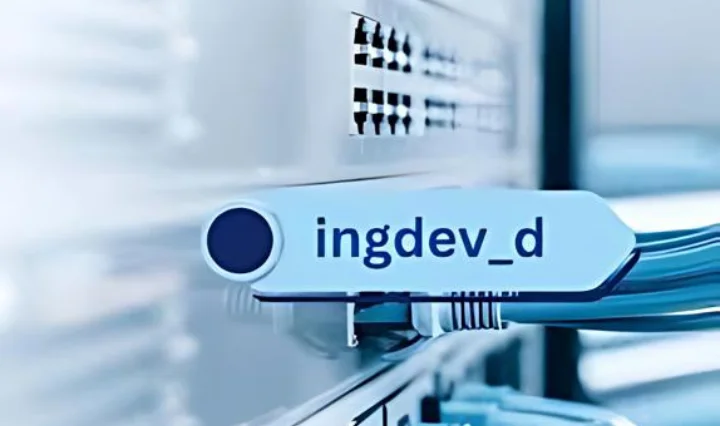Introduction to the World of EINs
In the bustling world of business, an Employee Identification Number (EIN) plays a pivotal role. Often referred to as a Federal Tax Identification Number, an EIN is crucial for businesses, particularly when it comes to tax purposes and opening a business bank account. Think of it as the social security number for a business. Just as individuals have unique identifiers, businesses need EINs to establish their identity in the eyes of the IRS.
For entrepreneurs and new business owners, understanding the importance of an EIN is crucial. Not only does it help in legitimizing a business, but it also aids in smoothing out various administrative processes. From filing taxes to setting up a company retirement plan, an EIN is often the first step in ensuring your business runs like a well-oiled machine.
In this blog post, we’ll explore the significance of EIN 27-2037969. We’ll discuss what it represents, who it’s issued to, and provide insights into the broader landscape of business identification. Whether you’re a budding entrepreneur or a seasoned business owner, understanding EINs can offer clarity and confidence in managing your enterprise.
Unveiling EIN 27-2037969
EIN 27-2037969 is not just a sequence of numbers; it’s a unique identifier tied to a specific entity. When an EIN is assigned, it represents the business’s official identity for the IRS and other governmental entities. This particular EIN has its own backstory and significance in the business world.
Understanding who EIN 27-2037969 is issued to and the context surrounding it can be crucial for stakeholders associated with this entity. Whether it’s a corporation, a nonprofit, or a sole proprietorship, an EIN provides the necessary legal framework and accountability for business operations.
EINs like 27-2037969 are integral to maintaining organized financial records, ensuring the correct filing of taxes, and facilitating smooth business transactions. By grasping the intricacies of an EIN, business professionals can better manage their responsibilities and leverage their EIN for optimal benefits.
Obtaining an EIN Made Simple
Securing an EIN might seem daunting, but it’s a relatively straightforward process. The IRS provides several methods for obtaining an EIN, ensuring that businesses can choose the one most convenient for them. Understanding the eligibility criteria and gathering the necessary documentation are essential steps in this process.
First and foremost, to be eligible for an EIN, the business must be located in the United States or U.S. Territories. The applicant must have a valid Taxpayer Identification Number, such as a Social Security Number. The application can be completed online, via fax, or through the mail, providing flexibility for different business needs.
Having all the necessary documentation ready is crucial for a seamless application process. This typically includes details about the business structure, the responsible party, and the nature of the business. By being well-prepared, businesses can avoid delays and start reaping the benefits of having an EIN sooner rather than later.
The Broader Implications of EIN 27-2037969
Beyond its role as a business identifier, EIN 27-2037969 holds significant implications for the entity it’s assigned to. In the broader landscape of business identification, an EIN is a key player in ensuring compliance with federal regulations and facilitating smooth business operations.
For businesses, having an EIN means easier access to financial services, streamlined tax filing processes, and enhanced credibility with suppliers and clients. It’s also crucial for businesses looking to expand, as an EIN is often required when entering into contracts or applying for licenses and permits.
EIN 27-2037969 represents more than just compliance; it’s a tool for growth and sustainability. By understanding its importance, businesses can position themselves for success in an increasingly competitive market.
Best Practices for Managing Your EIN
Once you’ve obtained an EIN, managing it effectively is crucial for maintaining compliance and ensuring the smooth operation of your business. Keeping accurate records and adhering to tax regulations are essential best practices for any business owner.
Firstly, maintaining a dedicated file or digital record of your EIN documentation is vital. This ensures that you have easy access to your EIN when needed, whether for tax filing, applying for credit, or completing administrative tasks.
Staying informed about tax regulations and deadlines is also crucial. Businesses should ensure timely filing of taxes and understand the implications of their EIN on their tax responsibilities. By keeping abreast of changes in tax laws, businesses can avoid penalties and ensure compliance.
Debunking Myths About EINs
Despite their importance, there are several misconceptions and myths surrounding EINs, including EIN 27-2037969. Understanding these myths can help businesses make informed decisions and avoid common pitfalls.
One common misconception is that an EIN is only necessary for large corporations. In reality, even small businesses and sole proprietors can benefit from having an EIN. It provides a level of legitimacy and can be crucial for financial transactions.
Another myth is that an EIN is the same as a Social Security Number (SSN). While both serve as unique identifiers, they are used for different purposes. An EIN is specifically for business-related activities, while an SSN is for personal taxation and identification.
Real-World Applications and Success Stories
To truly understand the benefits of EIN 27-2037969, it’s helpful to look at real-world examples and case studies. Many businesses have leveraged their EIN to achieve remarkable outcomes and streamline their operations.
Consider a startup that used their EIN to secure funding and establish credibility with investors. By having a clear business identity, they were able to negotiate favorable terms and attract significant investment.
In another case, a nonprofit organization used their EIN to qualify for tax-exempt status, reducing their operational costs and allowing them to focus more resources on their mission. These examples highlight the practical applications and tangible benefits of having an EIN.
Wrapping Up the Importance of EINs
In conclusion, EINs play a crucial role in the business landscape, offering significant benefits for businesses of all sizes. From ensuring compliance with tax regulations to enhancing credibility, an EIN is a valuable asset for any organization.

